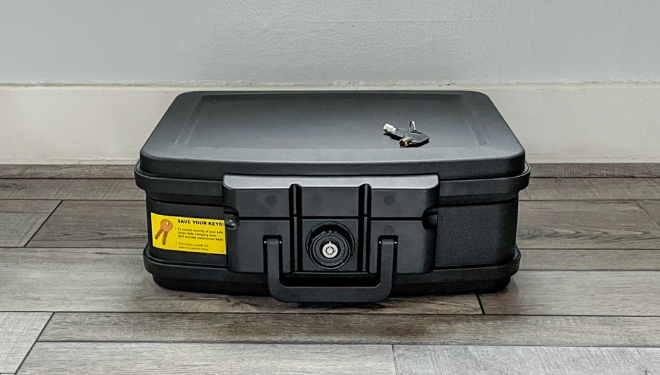There’s no denying that protecting your home from both theft and fire important, and a small fireproof safe can be a valuable investment for safeguarding items such as passports, jewelry, cash, and other treasures. However, with a variety of options available both online and offline, choosing the right safe can be daunting. Here’s a comprehensive guide to help you choose the best safe without breaking a sweat.
Know Your Needs and Determine the Size and Capacity of the Safe
Start by assessing what items you need to protect in your home. You can also consider the size and quantity of items you intend to store in the safe. This will help you determine the internal volume as well as the dimensions required.
Safes come in various sizes; hence, you should measure the space where you plan to install and consider how much storage capacity you need. It has to be spacious enough to hold your valuables comfortably without being too bulky for your home.
Fire Resistance Rating and Burglary Protection
A good safe should offer adequate fire protection. The fire resistance rating is an indicator of how long the safe can resist fire and at what temperatures. Common ratings include half an hour to 2 hours at temperatures ranging from 1200F to 1850F. Choose a rating that suits your location and the potential response time of local firefighters.
While fire protection is essential, ensuring your safe also provides adequate security against theft is critical. Look for safes with solid construction, pry-resistant doors, and reliable locking mechanisms such as digital keypads, combination locks, or biometric scanners.
Construction, Durability, and Water Resistance
It pays going for safes made from solid steel with sturdy hinges and bolts. Thicker walls and doors provide better protection against both fire and burglary attempts. Check for certifications from organizations such as UL (Underwriters Laboratories) for added quality assurance.
Some safes offer water resistance, which can be beneficial in case of a fire that calls for firefighting efforts. While not all safes are fully waterproof, many can withstand water from sprinklers or hoses.
Locking Mechanism, Portability, and Installation
Choose a locking mechanism that suits your preference and convenience. Electronic locks are common thanks to their ease of use and programmable codes. Combination locks provide reliability, while biometric locks offer quick access using fingerprints.
Consider whether you need a portable safe or one that can be bolted down. Portable safes are lighter and easier to move but may offer less burglary protection. Bolt-down safes provide additional security but are less flexible in terms of relocation.
Price, Budget, and Reviews/Reputation
A higher price often correlates with better quality and enhanced security features. You will want to set a budget based on your requirements and safes within that range.
Before making a final decision, read reviews from trusted sources and consider the reputation of the manufacturer. While doing this, look for feedback on durability, customer service, and real-life experiences with the safe’s performance in fire and burglary scenarios.
Ultimately, choosing the right fireproof safe involves evaluating your specific needs for protection and consideration of many other factors. By investing in a quality safe that meets these criteria, you will have peace of mind, knowing your valuables are secure from both fire damage and unauthorized access.








